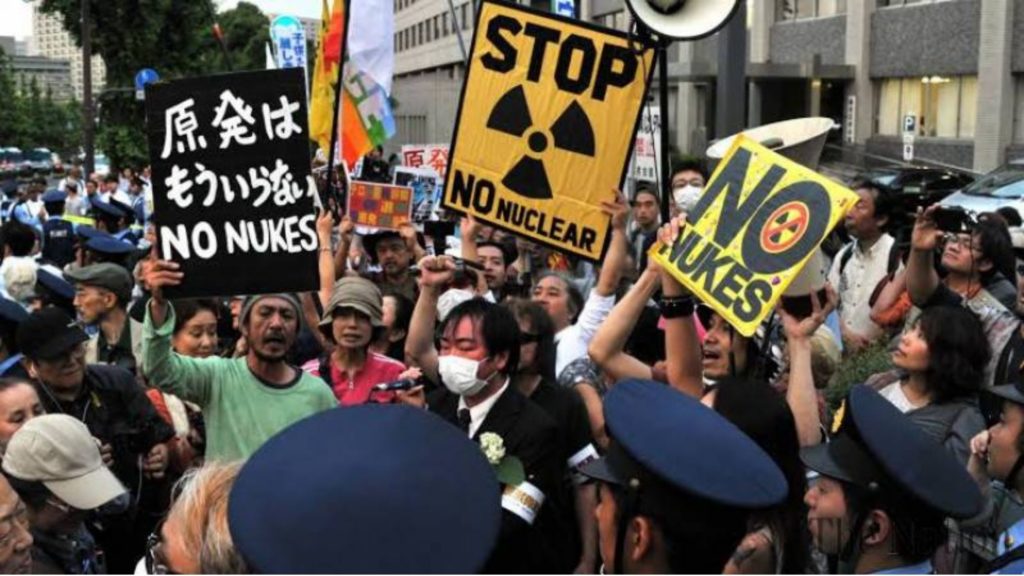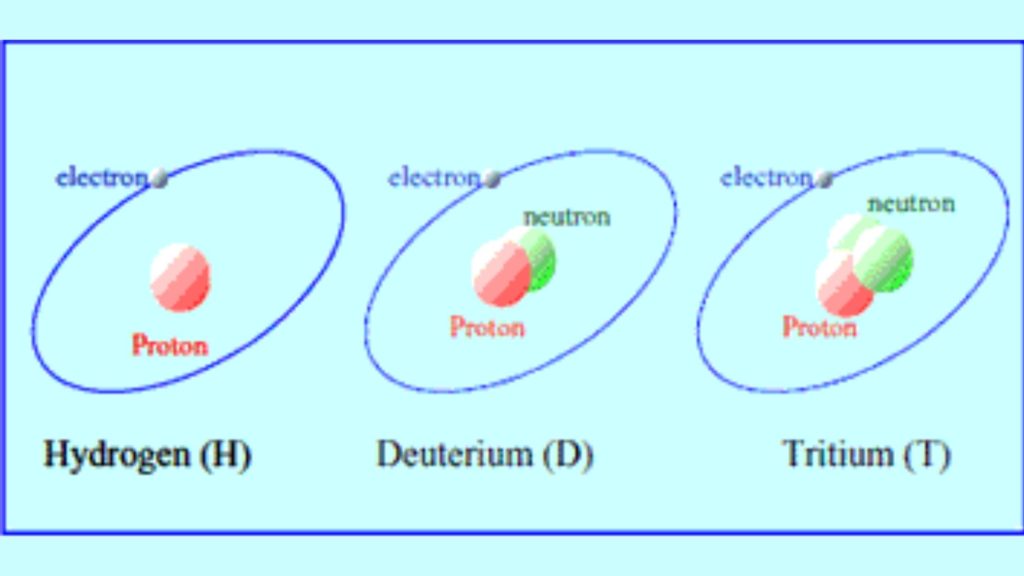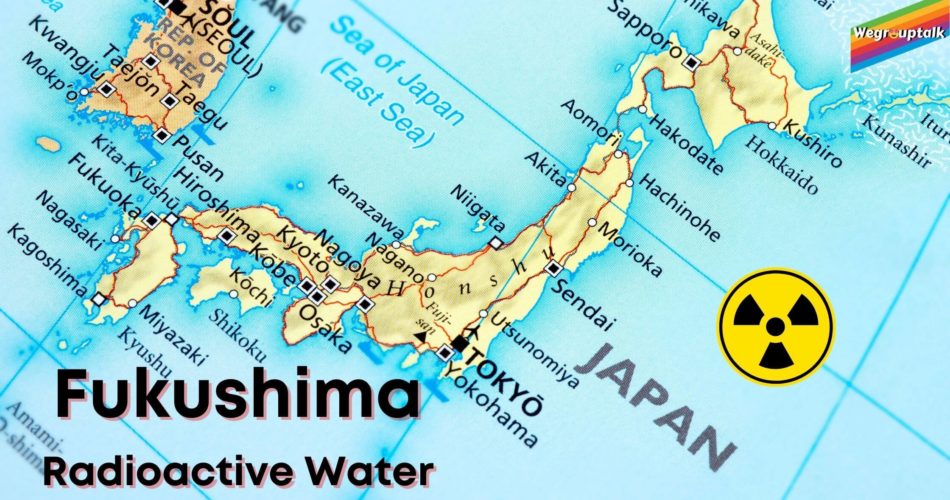Yes, you read it correctly, a country plans to dispose of almost a million tonnes of radioactive water into the pacific ocean. Nearly all the countries being affected by it are opposing this proposal. The disposal of this nuclear waste will lead to the contamination of the food chain, entering the fishes’ food cycle and killing them, which would then come in us humans’ plates.
This problem is not just theirs; instead, the entire world should be concerned about this terrible decision and find a proper way to dispose of the nuclear water rather than creating a threat to natural sea plants and animals. I believe it is a responsibility o every human being to oppose this decision and come forward with a substitute plan to dispose of the c-12 containing water which possesses one of the major world threats.
You might be wondering what led to such a terrible situation that turned almost a million tonnes of water radioactive? Well, I guess we need to dwell upon past for same because as always said, history has all answers.
How did the water was contaminated?
In 2011, a 9.0 pointer earthquake hit the eastern coast of Japan and destroyed the Fukushima national nuclear power plant. This earthquake caused a metre tsunami, which was the main reason for the destruction of the plant. The backup systems to tackle such problems during the earthquake soon came to work as the quake hit the nuclear power plant and prevented the meltdown. The real damage was done when the tsunami hit, it led to the breakdown of the fission chamber, and the colling water was in contact with the radioactive fuel.
When all hell let loose, the cooling system went down and led to the non-stopping creation of radioactive water which now faces a threat to our species. The Fukushima nuclear disaster is considered the worst atomic disaster since Chernobyl, which still takes the first place in nuclear disasters.
This tsunami took the lives of almost 18,600 people, and nearly 160,000 people were forced out of their homes. It has been almost ten years since the incident, and after almost a decade, it poses a threat to humans. This incident has already cost the government billions of dollars. Recently, the court of Japan has ordered the government and the company that owned the nuclear power plant to compensate almost 9.5 million dollars.
The Japanese officials say that all the other radioactive elements have been removed from the water and wouldn’t pose a threat at those concentration present. But the only element which is not in a minute quantity is tritium.
Where has it been stored until now?
It won’t shock many people; the government has been storing radioactive water in containers. Since the tsunami, they have tried every possible way to deal with the contaminated water, and all they came across was to store the water. There are approximately 250 million tonnes of water stored in containers at the Fukushima nuclear site and the space to keep the water is expected to run out by the year 2022.
This contamination stored in the special tanks with limited volume has been japan’s one of the major problems since the tsunami hit the shores of Fukushima. With passing time, the level of nuclear water has kept rising, and the space to store this water has been running out.
What is the government planning?
When the tsunami struck and left all the chaos on its retrieval, the only option that the scientists and government thought was to store the radioactive cooling water. It’s been almost a decade since the government has been holding the water in large non-reactive containers. But this wasn’t a permanent option for them, and even they knew that. So when the government started looking for other ways to dispose of the cooling water, the only most prominent option that came their way was to dispose of it in the pacific.
There has been much talk about this in Japan’s national and international levels and around the world. The Japanese government has been looking for every other option to dispose of cooling water, but fate hasn’t been on their side since long.
Government of Japan has talked of the pacific ocean over a decade now, and during the past couple of years it has only speeded up as the government runs out of space, the threat to aquatic life increases. According to some environmentalists and countries, almost all the marine life in pacific would be affected. This would affect the fishing economy of countries surrounding Japan and the countries that are majorly dependent on fishing.
It is believed by some protestors that the fishes would be taking in radiation and which would affect us as we obtain many of our daily goods from seas and oceans. As water travels almost everywhere, it is also believed that it can lead the radiation to our drinking water supply which can harm humans in a way that can’t be predicted yet.
So what is the government doing about it? Are they so chilled even if it hit Japan’s primary source of income and the fishers living in japan and neighbouring countries? Is nobody protesting against this decision? I guess people are or I might say countries are.
The protests.
The outbreak of news that japan is soon going to announce is disposing of the water in the pacific. There has been a recent spark off a global outrage against this decision of the Japanese government. The nuclear plant’s operator, Tokyo Electric power, has estimated that they will be running out of all the Fukushima storage tanks by 2022. The only way to tackle this is to dilute the water up to a minimum concentration and mic it with the pacific. Since their, this plan isn’t accountable for the environment; hence they are receiving significant protests throughout the world.

Neighbouring countries have already stopped importing fishes from Fukushima and adjacent ports because there is a belief that part of the nuclear water has already leaked in the sea. We understand that the people of neighbouring countries and Japan are concerned about their health, but why are people from all over the world protesting? Do we have an answer for that? I guess, yes.
The ocean is an enormous body and covers almost 60-70% of our total surface. This dilution of radioactive water into oceans will spread in every corner of the world, and once it is dumped, there is no stopping to it. Don’t we know a thing about how long it is going to take for the radioactive element to be decomposed? Or how the contents of the radioactive water affect humans? So we really can’t presume it is not going to harm us in any manner.
Countries like South Korea are entirely boycotting this decision of japan and protesting in every manner they could.
If the government has already decided what’s taking them this long?
The Japanese government is being cautious with the official announcement since they are very concerned about their international image. Japan Olympics which were supposed to be held in 2013, was postponed due to 2022. This is a significant reason the Japanese government is so precautious about their this decision.
The ocean is an indispensable part of the earth, and all the countries have an equal right to it. According to the UN convention of the law of seas, japan is obliged to protect the ocean and other natural habitats of millions of species that reside deep under blue layers. If japan takes this step, I guess they are considering the amount of loss they are going to suffer, i.e.,
- The seafood from japan will be boycotted
- The neighbouring countries will be on complete protests
- Japan’s economy will fall
- Most of the environmentalists will be protesting
- Japans international image will be polluted, and most important of all,
- Japans’s global diplomacy will be at stake.
But why are people protesting against the Japanese government? Why is it so hyped up? Is it that harmful to us?
What does water contain?
Do you all wish to know what the funny part about all of this mess is? Dumping the water in the oceans is the only way to get rid of it, and it is probably the best way to get rid of it. This is so because the radioactive water mainly contains tritium. To be put simply it is hydrogen, just the highly reactive and version of it.
Tritium, an isotope of hydrogen and it’s chemistry is a bit different from other elements. It is a mildly radioactive isotope of hydrogen with one proton and two neutrons. The government is moving forward with this plan because no harm has ever come from tritium to humans. It is, in fact, not even known how tritium affects humans. Tritium is assumed to be carcinogenic to humans consumes or taken by any means in high levels.

Although there is no such belief that it doesn’t affect humans, results from the treatment on mice are only available from the laboratories. Although there are more assumptions than reality, there is something we know. Tritium emits a very weak beta particle, and it so soft that our dead skin layer can stop it from entering our body.
The health risks of tritium are so low that the entire world has no idea what restriction they should put on it. In the United States, it is 740 Bq/L, in Canada, it is 7000 Bq/L, and in Australia, it is 76000 Bq/L. Any health administrators didn’t give these limits. They were assumed out of the blue and considered according to their natural habitat and availability.
But why this carelessness on a radioactive element?
Tritium is an isotope of hydrogen and no matter its size; it won’t be much larger than hydrogen and hydrogen is itself so small that it passes through most of the membranes and tissues. So tritium has two neutrons extra that’s all. It is found that tritium likes to reside in water and not in the issues, so the average halflife of tritium is 12.3 years out of our body, and when it enters or body, theoretically it is assumed to be ten days.
So it is believed by the Japanese government that on diluting tritium in the ocean it will prevent it from entering the human body. Even if it does, it is impossible to get a significant amount of radiation from it. Hence, it exists too quickly after being diluted.
On listening to the term radiation, people get terrified and presume the worse beforehand instead of knowing the facts. The Japanese government is doing all they can to prevent this from happening, it was not their fault that a tsunami hit the nuclear power plant, and all of this mess was created. They didn’t choose this, and neither did we.
So I believe we should listen to the Japanese government for what they are proposing and go with the scientific data and results before assuming anything. Also, I’d say that the Japanese government should be more transparent on the decisions being taken on the disposal of the contaminated water as it will affect the rest of the world.
Follow us on FACEBOOK, INSTAGRAM and TWITTER to stay connected.
ALSO Read- Deep Dive into Atomic Energy




